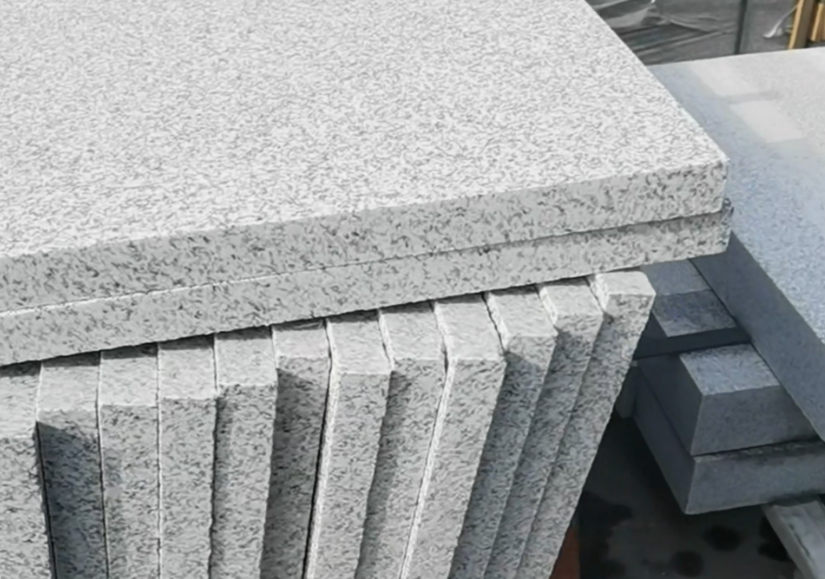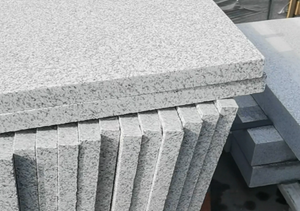
Stone material inspection and verification process - Inspection and verification of factories and certification services
As an upscale material for architectural decoration, the quality of stone products directly affects the engineering quality and decorative effect. To ensure that stone products meet national standards and quality certification requirements, establishing a professional inspection process is of vital importance. This article will systematically introduce the inspection standards, testing methods and certification requirements for stone products, providing a complete quality control guideline for enterprises.
I. Four-step Inspection and Certification Method for Stone Quality
1. Appearance and Structure Inspection Certification
Surface structure certification: Uniform fine-grained structure is considered a high-quality product, while coarse-grained structure is classified as a substandard product.
Crack defect certification: Remove the panels with minor cracks to prevent future fractures.
Edge integrity certification: Ensure there are no missing or jagged edges, guaranteeing a beautiful decorative effect.
Professional inspection standards: Establish a standardized certification process for visual inspections
2. Dimension accuracy inspection certification
Specification measurement certification: Accurately measure the dimensions to ensure the accuracy of the assembly.
Pattern alignment verification: Ensuring the integrity of patterns, designs and lines after the alignment process.
Decorative effect certification: Ensuring the final decorative effect through precise dimension control
3. Acoustic Performance Inspection Certification
Impact Test Certification:
High-quality stone: The sound produced by tapping is clear and pleasant.
Defective stone: Produces a rough and dull sound (with cracks or weathering)
Internal structure verification: Internal structure integrity is verified through acoustic testing.
4. Physical and Chemical Performance Inspection Certification
Ink test certification:
Excellent quality: The ink droplets remain stationary.
Poor quality: The ink quickly disperses and leaks out.
Internal density verification: Through a simple test, the tightness of the particle structure is verified.
II. National Standard Inspection and Certification System
1. Inspection Standards and Certification
Applicable Standard: GB/T 9966.3-2001 "Test Methods for Natural Facing Stones"
Certification scope: Professional testing of bulk density, true density, true porosity, and water absorption rate
Inspection qualification: Certified by a professional inspection institution that has obtained national standards certification.
2. Equipment Certification for Testing
Drying oven certification: Temperature control accuracy 105℃ ± 2℃
Accuracy certification of the balance:
Maximum capacity: 1000g, Sensitivity: 10mg
Maximum weighing capacity: 200g, sensitivity: 1mg
Density bottle certification: Standard measuring instrument with a volume range of 25 mL to 30 mL
III. Sample Preparation and Inspection Certification
1. Volume Density Sample Certification
Specification and standard: 50mm cube or cylinder
Dimension tolerance: ±0.5mm with precise control
Quantity requirement: Five standard test samples per group
Quality requirements: Crack-free integrity certification
2. True density sample certification
Sampling standard: 1000g of clean sample
Breaking specification: Standard for particles smaller than 5mm
Grinding fineness: Passed through a 63μm standard sieve
Shrinkage process: Quota sampling method, reduced to 150g for professional certification.
IV. Professional Certification of Inspection Process
1. Drying Treatment Certification
Temperature Control: Precise temperature control at 105℃ ± 2℃
Constant weight standard: The difference in mass between two consecutive measurements is less than 0.02%
Cooling process: The dryer is cooled to room temperature for standardization.
2. Immersion treatment certification
Water temperature control: 20℃ ± 2℃ distilled water
Soaking time: 48 hours (standard duration)
Surface treatment: Standardized operation of drying with a wet towel
3. Saturation Weighing Certification
Basket immersion: Professional treatment of water-saturated samples
Bubble removal: Completely remove adhered bubbles
Precise weighing: Accuracy to 0.02g - Professional certification
V. Inspection and Certification Process Standards
1. Sampling Inspection Plan
Implement statistical sampling in accordance with the GB/T standards
Key performance items undergo full inspection and certification.
Establish a complete quality traceability system
2. Inspection environment requirements
Standardize the inspection laboratory environment
Professional control of constant temperature and humidity
Calibrated and qualified testing equipment
3. Defect Level Determination
Serious Defect: Issues that affect structural safety
Main defect: Quality issue that reduces the decorative effect
Minor defect: Minor appearance blemish
VI. Key Control Matters for Factory Inspection Certification
To ensure that the quality of the stone products consistently meets the certification requirements, during the factory inspection process, the following matters need to be given priority attention:
Raw material extraction certification: Establish a quality assessment system for mineral sources
Process control: Develop specifications for key processes such as cutting, grinding, and polishing.
Equipment management for detection: Regular calibration of measuring instruments
Quality system certification: Obtained ISO9001 quality management system certification
Personnel qualification certification: Inspection personnel undergo professional training and obtain certificates before taking up their positions.
Inspection and Certification Summary
The inspection and certification of stone products is a highly technical and systematic process that requires comprehensive testing and certification of aspects such as appearance quality, dimensional accuracy, and physical and chemical properties. By establishing a professional inspection process and strict quality standards, enterprises can ensure that their stone products meet national certification requirements, providing high-quality and reliable premium materials for architectural decoration.
Share this product

Stone material inspection and verification process - Inspection and ve
As high-end materials for architectural decoration, the quality of stone products directly affects the quality of the project and the decorative effect.
